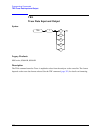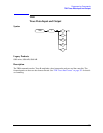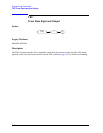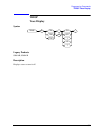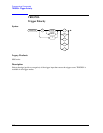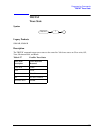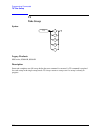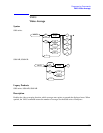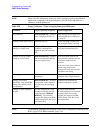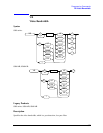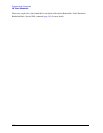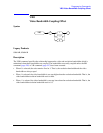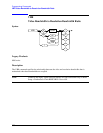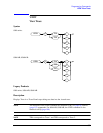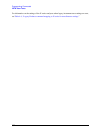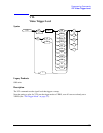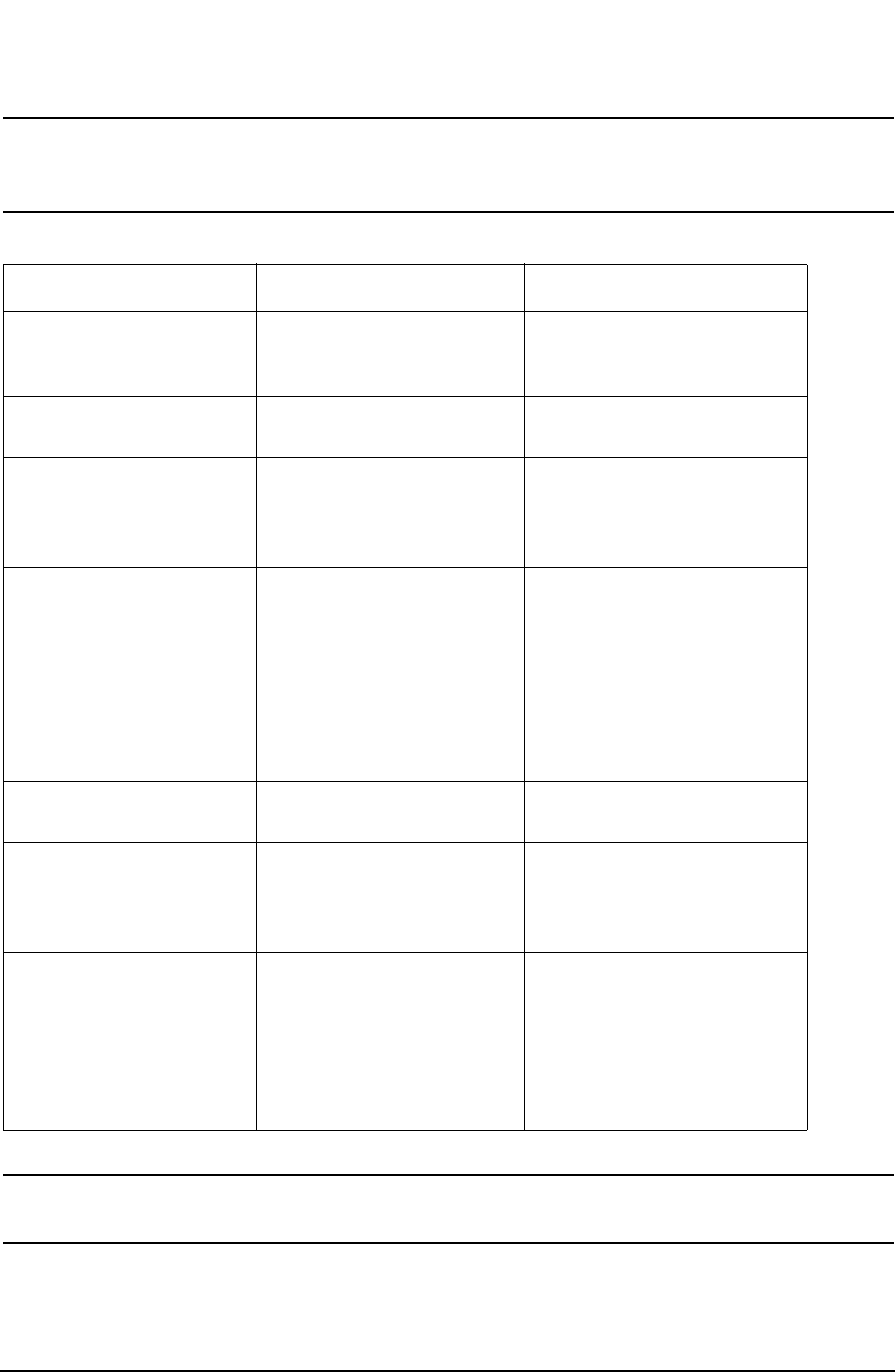
346
Programming Commands
VAVG Video Average
NOTE There are a few differences in the way video averaging works in the N9061A
application compared to the legacy analyzers. See the following table for a
summary of these differences.
NOTE For 8566A/B, 8568A/B, the functions of the VAVG command are identical to the
KSG (page 193)or KSH command (page 195).
Table 4-28 Legacy Analyzers - Video Averaging Behavioral Differences
Condition Legacy Spectrum Analyzers N9061A application
All conditions. 8566 and 8568 only - Original
trace is displayed in Trace C.
Only displays the averaged trace.
The averaged trace is displayed
in Trace A.
Average Count value set to 0. Cannot be set to 0. Video averaging is turned off if
the Averaging Count is set to 0.
Change in Average Count
setting to a higher value.
8566 and 8568 only -
Continues counting from
where the previous value left
off.
Resets the counter to zero and
starts the measurement again.
Change in average counter
setting to a lower value.
8566 and 8568 only - Updates
the screen annotation with the
lower averaging value.
If the new count value has not
been reached, continues until the
new lower count has been
reached.
If the new, lower count value has
already been reached, the
analyzer will stop and wait until
you take a new sweep.
Averaging turned on. Sweep time remains
unchanged.
Sweep time changes due to the
selection of the sample detector.
Change in resolution
bandwidth, video bandwidth,
sweep time, reference level
or attenuation.
8566 and 8568 only - In single
sweep mode, resets counter to
zero and starts the averaging
again.
Continues the measurement
without resetting the counter.
Change in center frequency
or span.
In single sweep mode, resets
counter to zero and starts the
averaging again. 8566 and
8568 only - Also reset the
counter after changes in RBW,
VBW, Sweep Time, Ref. Level
and Attenuation.
In single sweep mode the
X-Series analyzer uses all stored
averages. Does not reset the
counter after changes in RBW,
VBW, Sweep Time, Ref. Level
and Attenuation.



